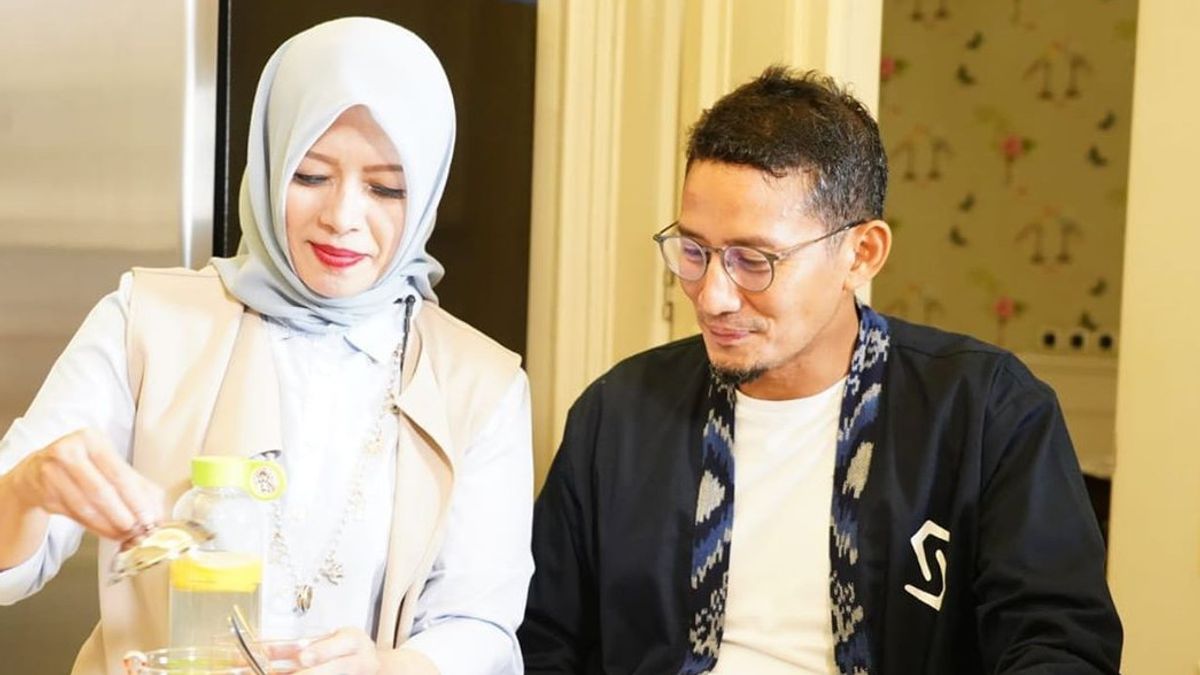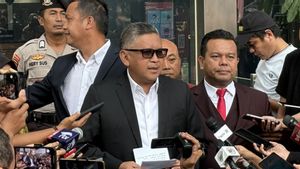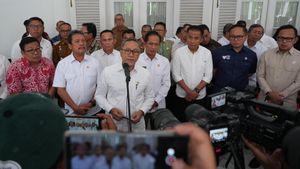JAKARTA - Sandiaga Salahuddin Uno admitted that he agreed that the current government was prioritizing handling COVID-19 in the economic sector. However, health care should not be forgotten.
With a focus on economic recovery, said the former vice presidential candidate, jobs will re-open and the burden on people's living costs can be overcome.
"This is the public's hope, hopefully the elites who now hold policies can catch messages and focus on economic parameters, in addition to health, we must continue to do so to break the chain of transmission of COVID-19," Sandi said in a webinar, Monday, July 21.
According to this Gerindra Party politician, many micro, small and medium enterprises (MSMEs) are worried that their economic conditions will approach the poverty line after the pandemic has been running for five months.
"According to our data, most recently, the MSMEs that have been affected and closed are already 47 percent. Those who have lost their livelihoods have already exceeded 5 million," said Sandi.
In agreement, Golkar Party Deputy Chairperson Ahmad Doli Kurnia said that the handling of health during the COVID-19 pandemic must be aligned and the handling of the economy.
Because, if the government only prioritizes one dimension in controlling COVID-19, then other problems will arise.
"If you only look at one perspective, I think there will be new problems. I predict, if health matters are not appropriate, or cannot be balanced with the economy, the impact will be social, security and political issues," said Doli.
For information, the Indonesian Political Indicators survey institute explained that currently more people want the government to prioritize economic problems over health during the COVID-19 pandemic.
Based on the results of a survey regarding public opinion on COVID-19 from the health and economic dimensions, Executive Director of Political Indicators Burhanuddin Murtadi said there were 47.9 people who wanted the government to prioritize the economy.
Meanwhile, there are 45 percent of people who prefer the government to prioritize health problems. Then, there were 7 percent who answered they didn't know or didn't answer.
"However, the difference in responses in July between pro-health and economic respondents is not statistically significant," said Burhanuddin in a survey presentation via webinar, Tuesday, July 21.
Burhanuddin explained that the trend of people who want the government to prioritize economic problems has increased from the results of a survey two months ago with a figure of 45 percent.
This increase is in line with the decrease in the number of people who want the government to prioritize health problems two months ago with a figure of 60.7 percent.
This survey was conducted in the period from 13 to 16 July 2020. The survey was conducted on 1,200 people using telephone contacts to respondents who had been asked to survey the previous period.
This survey has a margin of error (tolerance of error) of 2.9 percent and has a confidence level of 95 percent. Samples come from all provinces that are proportionally distributed.
[/ read_more]
The English, Chinese, Japanese, Arabic, and French versions are automatically generated by the AI. So there may still be inaccuracies in translating, please always see Indonesian as our main language. (system supported by DigitalSiber.id)













